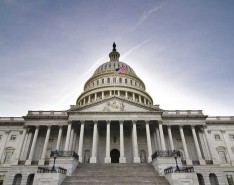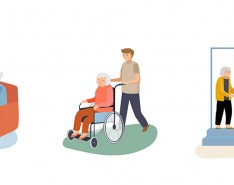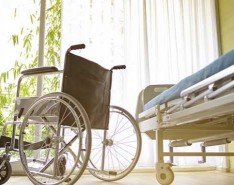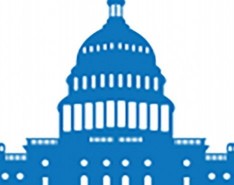WASHINGTON, D.C. (September 22, 2022)—The United States Department of Health and Human Services (HHS), through its Administration for Community Living, released the 2022 National Strategy to Support Family Caregivers. It highlights nearly 350 actions the federal government will take to support family caregivers in the coming year and more than 150 actions that can be adopted at other levels of government and across the private sector to build a system to support family caregivers.
family caregivers
ATLANTA (April 14, 2022)—Aveanna Healthcare Holdings, Inc., a diversified homecare platform focused on providing care to medically complex, high-cost patient populations, announced it will participate in Arizona's Family Licensed Health Aide Program (LHA), a program in the state of Arizona that will allow Aveanna to train eligible family members to be paid for caring for loved ones in their homes.
NEW YORK (February 15, 2022)—As part of an initiative funded by The John A. Hartford Foundation, FAIR Health conducted a nationwide study comprising two surveys geared toward older patients (adults 65 and older) and family caregivers/care partners. The surveys revealed critical insights into the needs of older adults and their caregivers/care partners concerning health care navigation and decision making.
WASHIGNTON, D.C. (July 23, 2021)—A bipartisan group of Senators led by Sen. Tim Kaine (D-Virginia) have introduced the Supporting Our Direct Care Workforce and Family Caregivers Act (S. 2344), a bill to provide $1 billion in grants to states and other eligible entities to support innovative projects and programs focused on recruitment, retention and training for direct care workers, as well as family caregivers.
GILBERT, Ariz. (May 26, 2021)—Family caregiving is on the rise: approximately 42 million Americans provide unpaid care for an elder family member (50+) according to AARP. Additionally, Pew Research found that 12% of all American adults are in the “sandwich generation” with children of their own 18-or-under while also caring for their aging parents. But that’s not their only responsibility; the majority are employed full time, many at the top of their careers.
Managing appointments and medications can be a daunting chore for caregivers of someone with a chronic illness. Research cited by the American Psychological Association found that among people age 55 to 75, those who are caregivers show a 23% higher level of stress hormones, which can lead to high blood pressure, and a 15% lower level of immune response, making them more vulnerable to the flu and other infections.
CHARLOTTE, N.C. (February 23, 2021)—Winners were announced today for the first-ever Family Caregiver of the Year Awards, which recognizes unpaid family caregivers in the United States who exhibit exceptional diligence and support through the act of caregiving. The awards program was sponsored by Carewell, a leading advocate for caregivers and online supplier of home health products.
BIRMINGHAM, Ala. (September 15, 2020)—Communication matters, especially during a pandemic. There are a lot of apps and other channels out there for communicating with groups; HomeCare spoke with Mike Eidsaune, the CEO of Carely, an app designed specifically for family caregivers and senior care organizations. Carely recently announced the purchase of the online community Caregiving.com.
GILBERT, Ariz. (July 2, 2020)—SYNERGY HomeCare, a national in-home care organization, has launched an educational campaign about a technique called “benevolent probing” that can assist adult children in determining if their parents could benefit from homecare assistance in order to retain their independence.
BOSTON (November 25, 2019)—Seniorlink, Inc., a tech-enabled health services company, has launched its fourth annual #thankacaregiver campaign to increase awareness and support of family caregivers in Georgia, and throughout the United States. The campaign is part of Seniorlink's continued commitment to honor family caregivers during the month of November, National Family Caregiver's Month.
PAWTUCKET, R.I. (August 15, 2019)—Ageless Innovation LLC, a global company devoted to reimagining how people positively live and age together through the power of play, is proud to announce its Joy for All Companion Pet Kitten has been named a recipient of the 2019 Caregiver Friendly Awards.
BALTIMORE (May 15, 2019)—May is Mental Health Awareness Month, and Senior Helpers, a provider of in-home senior care services, has released the findings of a 1,000-person survey that highlights the need to help family caregivers manage factors that can impact mental health. With more than 65 million people across America acting as family caregivers, it is a far-reaching issue.
BURLINGAME, Calif. (December 5, 2018)—CareLinx, an online home caregiver network, announced the national launch of Medicare At Home. The product enables Medicare Advantage plans to safely and efficiently enhance their supplemental benefits with non-skilled homecare.
KENILWORTH, N.J. (November 5, 2018)—Supportive information addressing the challenges faced by family caregivers of older adults will be highlighted on merckmanuals.com, an online medical reference, for National Family Caregivers Month in November.
LEXINGTON, Mass. (February 14, 2018)—When Logan Wells, then a high school sophomore, watched his parents and aunt care for his grandmother after a dementia diagnosis, he felt helpless. But observing the process gave him an idea for one way he could make improvements: communication. With multiple people including family members and professional caregivers or nursing staff caring for a single individual, the burden remained on one person to coordinate care and communicate amongst the team.
WASHINGTON, D.C. (January 9, 2018)—AARP welcomes passage in the U.S. Senate and the U.S. House of Representatives of the bipartisan Recognize, Assist, Include, Support, and Engage (RAISE) Family Caregivers Act (H.R. 3759). The legislation, introduced in the U.S. Senate by Senators Susan Collins (R-ME) and Tammy Baldwin (D-WI), and in the U.S. House by Representatives Gregg Harper (R-MS) and Kathy Castor (D-FL), requires the U.S.









